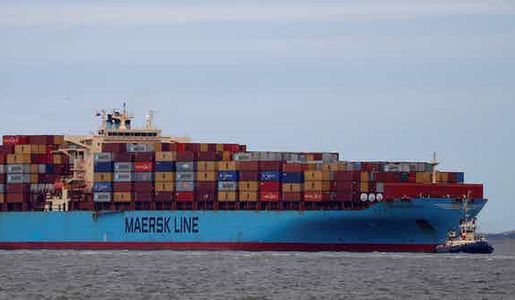Selin in The Conversation on CO2 Emissions and Cargo Ships
Henrik Selin, Associate Professor of International Relations at the Frederick S. Pardee School of Global Studies at Boston University, co-wrote a recent Op-Ed examining carbon emissions from the cargo ships used in international shipping. Selin co-wrote the Op-Ed with GDP Center Administrator Rebecca Cowing.
The Op-Ed, entitled “Cargo Ships Are Emitting Boatloads of Carbon, And Nobody Wants To Take The Blame,” was published in The Conversation on December 18, 2018.
From the text of the article:
Maritime shipping transports 90 percent of the goods traded around the world by volume. Moving large amounts of goods such as oil, computers, blue jeans and wheat across oceans drives the global economy, making it cheaper and easier to buy almost anything.
But hauling goods around by sea requires roughly 300 million tons of very dirty fuel, producing nearly 3 percent of the world’s carbon dioxide emissions, giving the international maritime shipping industry roughly the same carbon footprint as Germany.
At summits like the COP24 meeting held in Poland in December of 2018 and in agreements such as the one struck in Paris in 2015, national governments have largely ignored the carbon dioxide emissions from international shipping entering the atmosphere.
This is a real problem because if no country is held responsible for emissions, no government will try to reduce them. We believe as scholars of global environmental cooperation that one way forward is to make international maritime shipping emissions the responsibility of specific countries with the goal of increasing pressure to encourage emission reductions.
Henrik Selin conducts research and teaches classes on global and regional politics and policy making on environment and sustainable development. He is a Hans Fischer Senior Fellow at the Institute for Advanced Study at the Technical University of Munich. His most recent book is EU and Environmental Governance, by Routledge Press, and is also the author of Global Governance of Hazardous Chemicals: Challenges of Multilevel Management by MIT Press.
